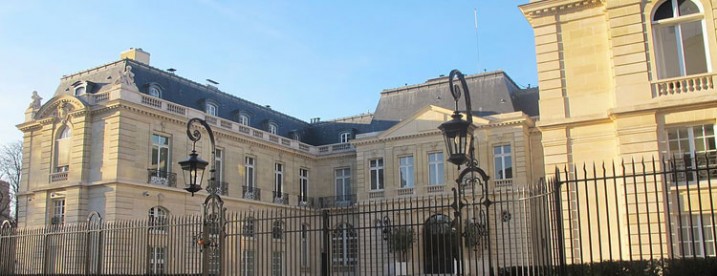By Sophie Haggerty, June 15, 2015

Other Countries Should Follow Norway’s Example
On June 5, the Norwegian Parliament unanimously voted to establish a public registry of corporate ownership information, becoming the latest country to tackle the abuse of anonymous companies through increased transparency.
Anonymous companies are one of the top tools used by criminals, kleptocrats, tax evaders, and terrorists to launder dirty money with impunity. Requiring companies to publicly disclose in a central registry their ultimate, human, beneficial owner(s) is regarded as the gold standard in tackling the abuse of these phantom firms.
Norway’s strong endorsement of transparency comes as no big surprise: the Scandinavian country routinely ranks near the top of transparency and anti-corruption rankings, and Norway was the first country to get behind the push to curb illicit financial flows. Their support on this topic dates back to the formation of the Norwegian Government-led Task Force on the Development Impact of Illicit Financial Flows in 2007 and their financial backing of the Financial Transparency Coalition at its inception in early 2009–long before illicit flows topped the global agenda.
In establishing a public registry, Norway joins Denmark and the United Kingdom—the first country to commit to a public registry of beneficial ownership information back in October 2013. The UK followed through with its commitment this March by passing historic legislation needed to fulfill its pledge.
By Liz Confalone, December 5, 2014

Slow but Steady Progress towards Curtailing the Abuse of Anonymous Companies
In June 2013, G8 leaders met in Lough Erne and agreed to a set of principles on beneficial ownership transparency. The principles state that companies should maintain their beneficial ownership information and that the information should be available to law enforcement and other competent authorities; additionally, countries were to consider making such information available to financial institutions and other regulated businesses. Trust information should be collected and available, the principles explained, but only to law enforcement. These principles were largely reiterated by the Financial Action Task Force (FATF)—the body setting international anti-money laundering standards—in their Guidance on Transparency and Beneficial Ownership in October 2014 and by the G20 in their High Level Principles on Beneficial Ownership in November 2014.
Despite the establishment of this baseline, momentum is building since Lough Erne to raise the bar. In July 2013, the UK began the process to establish a central register of information and, after a public comment period, determined that the register should be publicly available—a position strongly supported by Global Financial Integrity (GFI). In April 2014, the European Parliament approved provisions requiring formation of public registers as part of their draft of the European Union’s Fourth Anti-Money Laundering Directive (AMLD), but the E.U. Council and the E.U. Commission have yet to take a public position on the AMLD, delaying its final adoption. Just last month, Denmark announced that it, too, would create its own public registry of beneficial ownership information.
By Heather Lowe, October 30, 2014

Everyone Should Be Able to Determine with Whom They Are Doing Business, Writes GFI’s Heather Lowe
On Monday of this week, the Financial Action Task Force (FATF), the body setting international anti-money laundering standards, published new Guidance on Transparency and Beneficial Ownership, detailing a variety of ways in which countries can comply with FATF Recommendations 24 and 25 (which relate to transparency and beneficial ownership of legal persons and arrangements) and sending the message that complaining about the difficulty of compliance is no longer an option. FATF consulted with the Organization for Economic Cooperation and Development (OECD) on this publication, recognizing that identification of the beneficial owners of legal entities and arrangements is not only a money laundering issue, but a fundamental element of the OECD’s new multilateral automatic exchange of financial information. What neither FATF nor the OECD appears to have yet grasped, however, is that beneficial ownership – knowing who is ultimately behind a company – is a matter of sound business practice. Everyone should be able to determine with whom they are doing business.
That lack of understanding was evident on page 21 of the Guidance, where FATF made it clear that it was supportive of countries choosing to create publicly accessible registries for information, as the UK is in the process of creating. FATF stated that:
“although this is not required by the FATF Recommendations, some countries may be able to provide public access to information through a searchable online database.”
The rationale behind this, they say, is that it:
“would increase transparency by allowing greater scrutiny of information by, for example, the civil society, and timely access to information by financial institutions, DNFBPs and overseas authorities.”
While we civil society folks appreciate what appears to be an attempt by FATF to demonstrate that they have heard civil society’s drumbeat on this issue, unfortunately what this shows is that they have not yet understood the variety of reasons for that drumbeat.



